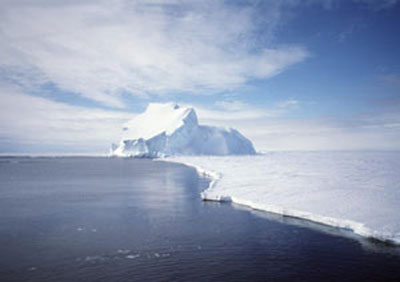Warm Water Creatures May Soon Rule the Oceans

Get the world’s most fascinating discoveries delivered straight to your inbox.
You are now subscribed
Your newsletter sign-up was successful
Want to add more newsletters?

Delivered Daily
Daily Newsletter
Sign up for the latest discoveries, groundbreaking research and fascinating breakthroughs that impact you and the wider world direct to your inbox.

Once a week
Life's Little Mysteries
Feed your curiosity with an exclusive mystery every week, solved with science and delivered direct to your inbox before it's seen anywhere else.

Once a week
How It Works
Sign up to our free science & technology newsletter for your weekly fix of fascinating articles, quick quizzes, amazing images, and more

Delivered daily
Space.com Newsletter
Breaking space news, the latest updates on rocket launches, skywatching events and more!

Once a month
Watch This Space
Sign up to our monthly entertainment newsletter to keep up with all our coverage of the latest sci-fi and space movies, tv shows, games and books.

Once a week
Night Sky This Week
Discover this week's must-see night sky events, moon phases, and stunning astrophotos. Sign up for our skywatching newsletter and explore the universe with us!
Join the club
Get full access to premium articles, exclusive features and a growing list of member rewards.
Warm-water sea creatures may one day rule the oceans as their cold-water competitors fail to adapt to climate change.
This scenario is suggested by a new study which concludes that a species of Antarctic limpets, a type of small mollusk, can't grow as fast as their limpet cousins in warmer climates. Being introduced to warmer water only stunts the growth of the Antarctic creatures even more.
"Sea temperature is predicted to increase by around 2 degrees Celsius in the next 100 years," said study leader Keiron Fraser of the British Antarctic Survey. "If cold-blooded Antarctic animals can't grow efficiently or increase their growth rates, they are unlikely to be able to cope in warmer water or compete with species that will inevitably move into the region as temperatures rise."
Scientists once assumed that polar species grew slower than temperate and tropical species because food was scarce in the winter. But the new study, first published in the July 20 online issue of The Journal of Experimental Biology, shows that proteins—the building blocks of growth—are the problem.
Cold-blooded animals, such as the Antarctic limpets, that live in colder waters can't produce proteins as efficiently as those that live in warmer waters, and can't hold on to many of those they do make, according to the study's findings. While tropical water limpets can keep about 70 percent of the proteins they make, Antarctic species retain only about 20 percent.
While warmer waters would seem to be good news for the Antarctic limpets by allowing them to produce more proteins, it turns out that their protein production peaks at a specific temperature—the Antarctic summer maximum. At anything above that temperature the limpets actually produce less protein, Fraser said.
"The animal certainly doesn't seem to have the ability to produce proteins outside of this narrow temperature range," he told LiveScience.
Get the world’s most fascinating discoveries delivered straight to your inbox.
Because limpets sit near the base of the Antarctic food chain, their disappearance could threaten species that dine on them, such as seabirds, fish and starfish.
- Video: Greatest Warming Seen at High Latitudes
- Global Warming: How Do Scientists Know They're Not Wrong?
- Top 10 Surprising Results of Global Warming

Andrea Thompson is an associate editor at Scientific American, where she covers sustainability, energy and the environment. Prior to that, she was a senior writer covering climate science at Climate Central and a reporter and editor at Live Science, where she primarily covered Earth science and the environment. She holds a graduate degree in science health and environmental reporting from New York University, as well as a bachelor of science and and masters of science in atmospheric chemistry from the Georgia Institute of Technology.
 Live Science Plus
Live Science Plus










